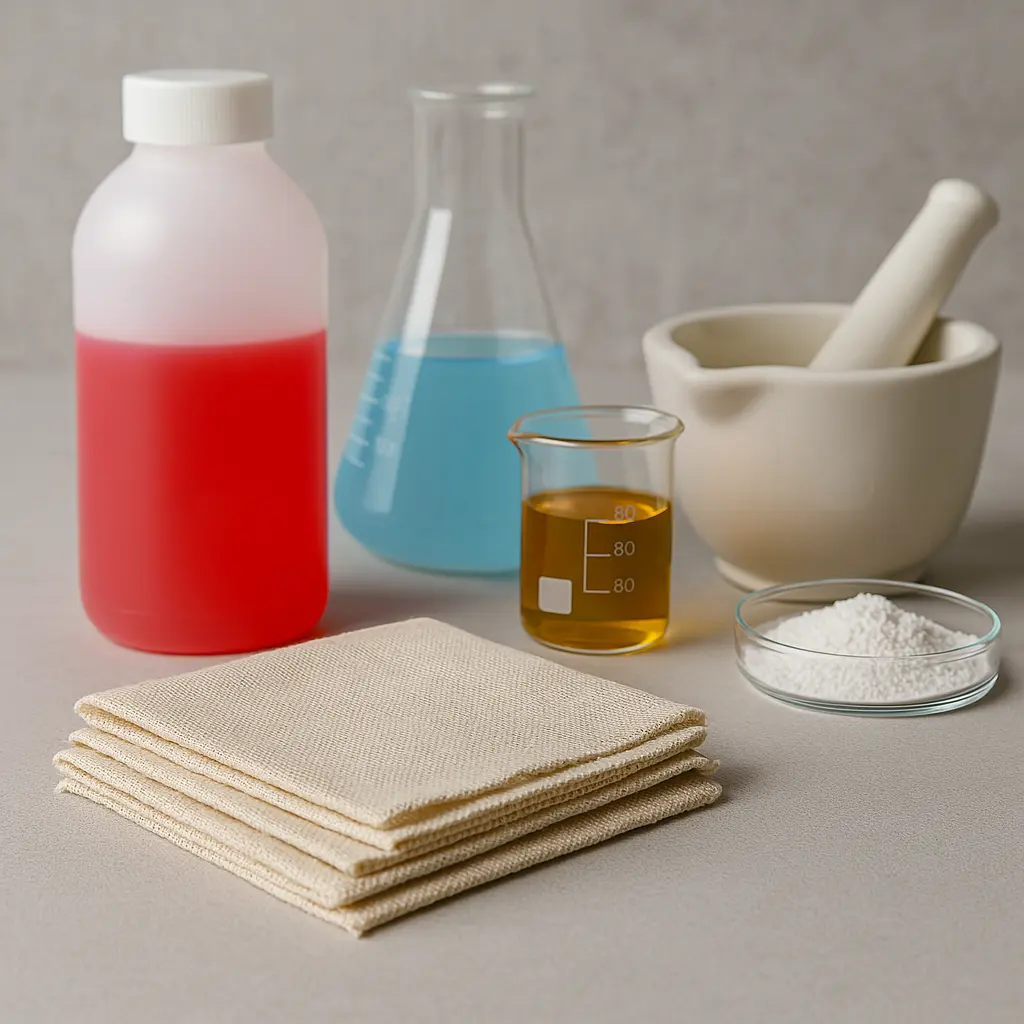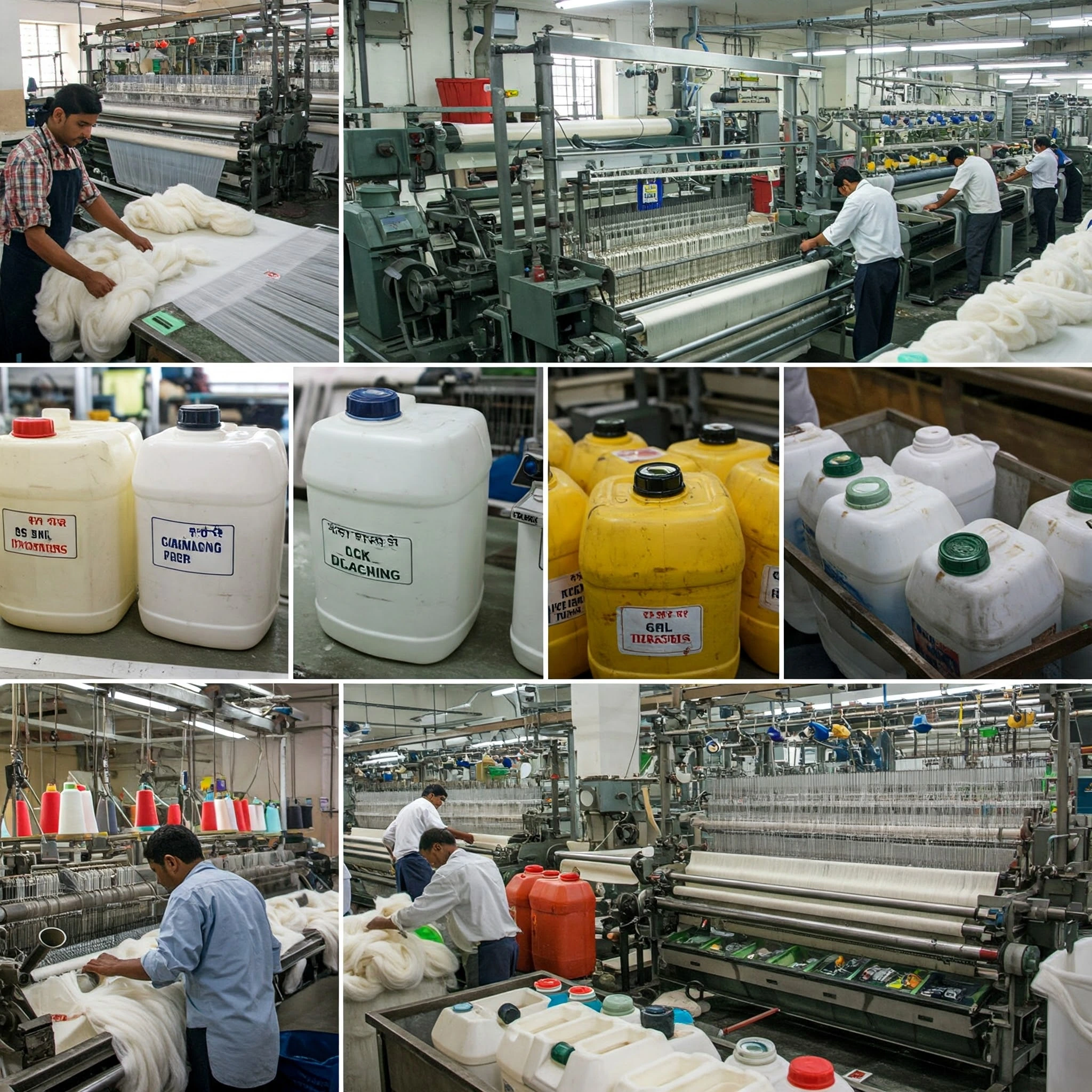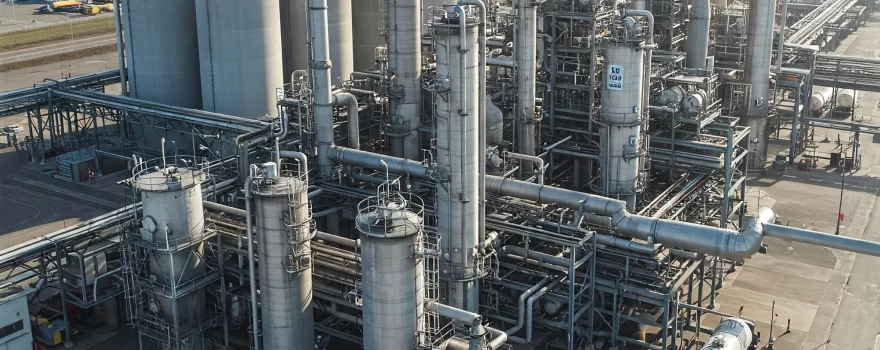
Table of Contents
Textile Chemicals Manufacturing Companies
Textile Chemicals Manufacturing Companies Textile chemicals manufacturing companies are vital to fabric processing. They supply the substances that determine fabric qualities. These include dyes, softeners, and finishing agents. The industry relies on these suppliers for consistent quality. They also provide solutions that meet environmental standards. Their role is critical in maintaining the industry’s competitive edge.
Key Processes Involved in High-Quality Textile Chemical Production
The production of high-quality textile chemicals involves a meticulous process that ensures the desired properties and performance of the final product. This process typically involves the following steps:
| Step | Description |
| Formulation | The careful selection and blending of raw materials to achieve the desired properties of the textile chemical. This may involve considering factors such as color, pH, viscosity, and compatibility with other textile chemicals. |
| Testing | Once the formulation is complete, the textile chemical is subjected to rigorous testing to ensure it meets the required specifications. This could include assessments of characteristics like colorfastness, wash fastness, and durability. |
| Quality Control | During the manufacturing process, quality control protocols are established to verify that the textile chemical adheres to the necessary standards. This may encompass routine evaluations of raw materials, testing during production, and assessments of the final product. |
| Packaging and Distribution | Once the textile chemical has passed quality control, it is packaged and distributed to customers. This may involve packaging in bulk containers or smaller packages for retail sale. |
Textile chemical manufacturers must follow environmental rules. This includes permits for wastewater and emissions. They ensure product safety. Making quality chemicals is complex. It needs expertise. They are key to fabric properties.
Types of Chemicals Produced by Textile Chemicals Manufacturing Companies
The textile industry relies on a wide range of chemicals to achieve the desired properties and performance of fabrics. These chemicals can be broadly classified into the following categories:
| Chemical Category | Description |
| Dyeing Auxiliaries | Chemicals that help to improve the dyeing process, such as surfactants, leveling agents, and dispersing agents. |
| Finishing Agents | Chemicals applied to fabrics to impart specific properties, such as water repellency, wrinkle resistance, and flame retardancy. Examples include resins, silicones, and flame retardants. |
| Fabric Softeners | Chemicals used to make fabrics feel softer and more comfortable, such as cationic surfactants and fatty acids. |
Beyond the main types, other textile chemicals exist. Bleaching agents, brighteners, and antimicrobials are examples. Manufacturers are crucial. They supply chemicals for quality fabrics. They continuously innovate to meet industry demands.
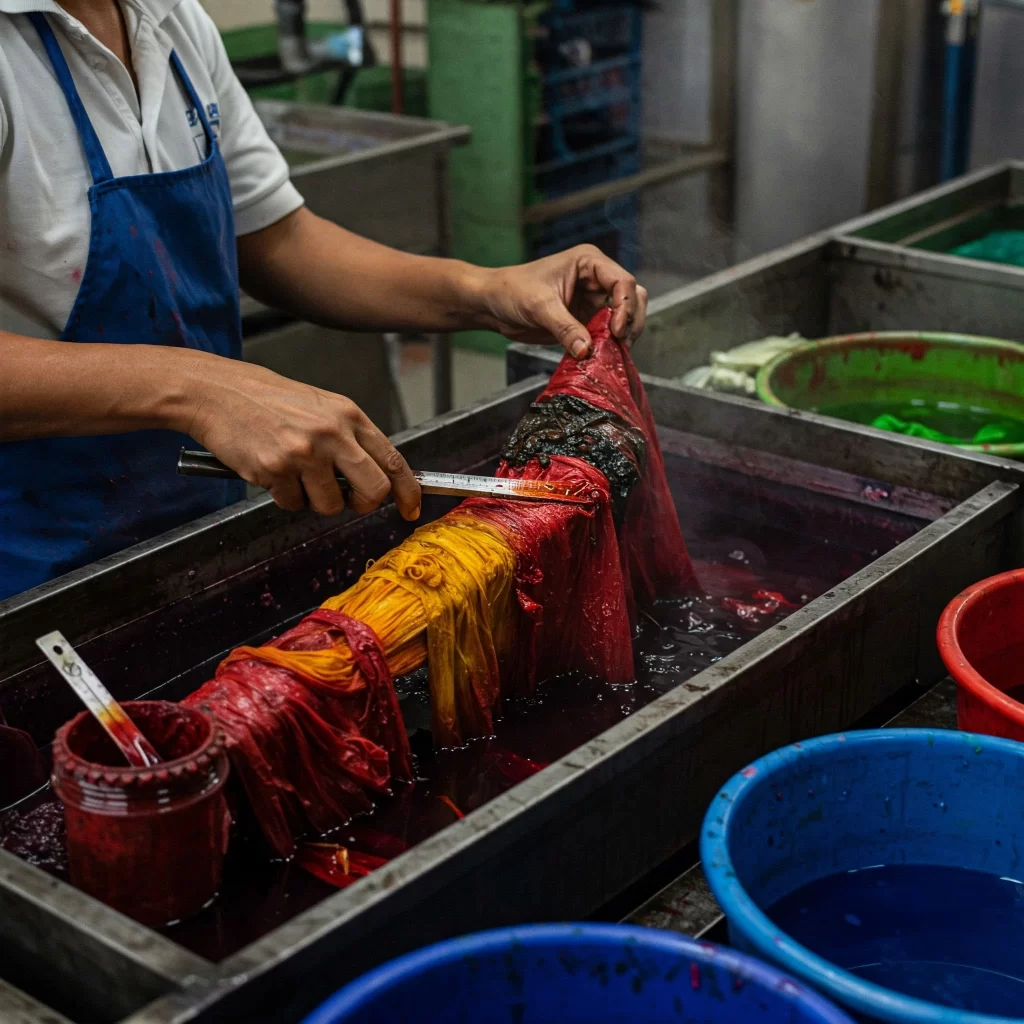
Sustainable Practices Adopted by Leading Textile Chemicals Manufacturing Companies
Leading chemical manufacturers are increasingly committed to sustainability in their production processes. This is driven by a combination of factors, including growing consumer demand for eco-friendly products, stricter environmental regulations, and a desire to reduce their environmental impact.
Some of the latest innovations in eco-friendly textile processing include:
The development of new, more sustainable chemicals that are less harmful to the environment.
The use of renewable energy sources, such as solar and wind power, to reduce greenhouse gas emissions.
The implementation of water-saving technologies, such as closed-loop water systems.
The use of recycled materials, such as recycled polyester, to reduce the environmental impact of textile production.
In addition to these innovations, chemical manufacturers are also working to comply with a number of environmental regulations. This set of regulations pertains to a broad array of topics, including air emissions, water pollution, and waste disposal practices. Chemical manufacturers are integral to the textile industry, showing a commitment to sustainability and consistently working on innovative solutions to mitigate their environmental effects.
Selecting the Best Textile Chemicals Manufacturing Company
When selecting a reliable textile chemical supplier, several key factors should be considered to ensure the quality and consistency of the products used in textile manufacturing processes.
Quality Certifications:
Chemical Safety Certifications (e.g., REACH Compliance): Compliance with regulations like REACH (Registration, Evaluation, Authorization, and Restriction of Chemicals) ensures that the supplier’s products meet stringent safety and environmental standards.
ISO 9001 Certification: This internationally recognized standard indicates that the supplier has a robust quality management system in place, ensuring consistent product quality and adherence to industry best practices.
Environmental Certifications (e.g., ISO 14001): These certifications demonstrate the supplier’s commitment to environmental sustainability and responsible manufacturing practices, which can be crucial for meeting eco-conscious consumer demands.
Supply Chain Reliability:
Responsive Customer Service: A responsive and helpful customer service team can provide timely support, address any concerns, and build a strong working relationship.
Consistent Product Availability: A reliable supplier should have a stable supply chain to ensure consistent availability of products, minimizing disruptions to your textile production.
On-time Delivery: Timely delivery of chemicals is essential to maintain efficient production schedules. A supplier with a strong logistics network can help avoid delays and ensure smooth operations.
R&D Capabilities:
Technical Expertise: Access to technical expertise can be valuable for troubleshooting issues, optimizing processes, and ensuring the best possible results for your textile products.
Innovation and Development: A supplier with a dedicated R&D department can offer innovative solutions to meet evolving textile industry needs and stay ahead of the competition.
By carefully evaluating these factors, textile manufacturers can choose reliable chemical suppliers who can provide high-quality products, support sustainable practices, and contribute to the overall success of their business. For businesses focused on selling textile chemicals, understanding these supplier qualities is paramount to ensuring product consistency and customer satisfaction.
Top Textile Chemicals Manufacturing Companies
The textile industry relies on a network of global and regional chemical manufacturers to supply the specialized substances that give fabrics their desired properties and performance. Here are some of the leading players in the industry:
| Company | Location | Expertise |
| Clariant | Switzerland | Dyes, auxiliaries, functional finishes |
| BASF | Germany | Dyes, pigments, performance chemicals |
| DyStar | Global | Textile dyes and chemicals |
| Archroma | Switzerland | Color and specialty chemicals |
| Sumitomo Chemical | Japan | Dyes, auxiliaries, functional finishes |
| Colorchem Ltd. | India | Dyes and intermediates |
| Indigo Chemical Industries | India | Dyes and intermediates |
| J.K. Synthetics Ltd. | India | Dyes and intermediates |
| Zhejiang Longsheng Group | China | Dyes and intermediates |
| Zhejiang Supereco Chemical Co., Ltd. | China | Dyes and intermediates |
| Huntsman Corporation | United States | Performance products |
| Solvay | Belgium | Specialty chemicals |
| Evonik Industries | Germany | Specialty chemicals |
Regional Manufacturers:
India: Colorchem Ltd., Indigo Chemical Industries, J.K. Synthetics Ltd.
Europe: Huntsman Corporation, Solvay, Evonik Industries
China: Zhejiang Longsheng Group, Zhejiang Supereco Chemical Co., Ltd.
These manufacturers cater to the diverse needs of the textile industry, providing products that meet the latest trends and regulations. They are constantly innovating to develop new and sustainable solutions for the future of textile production.
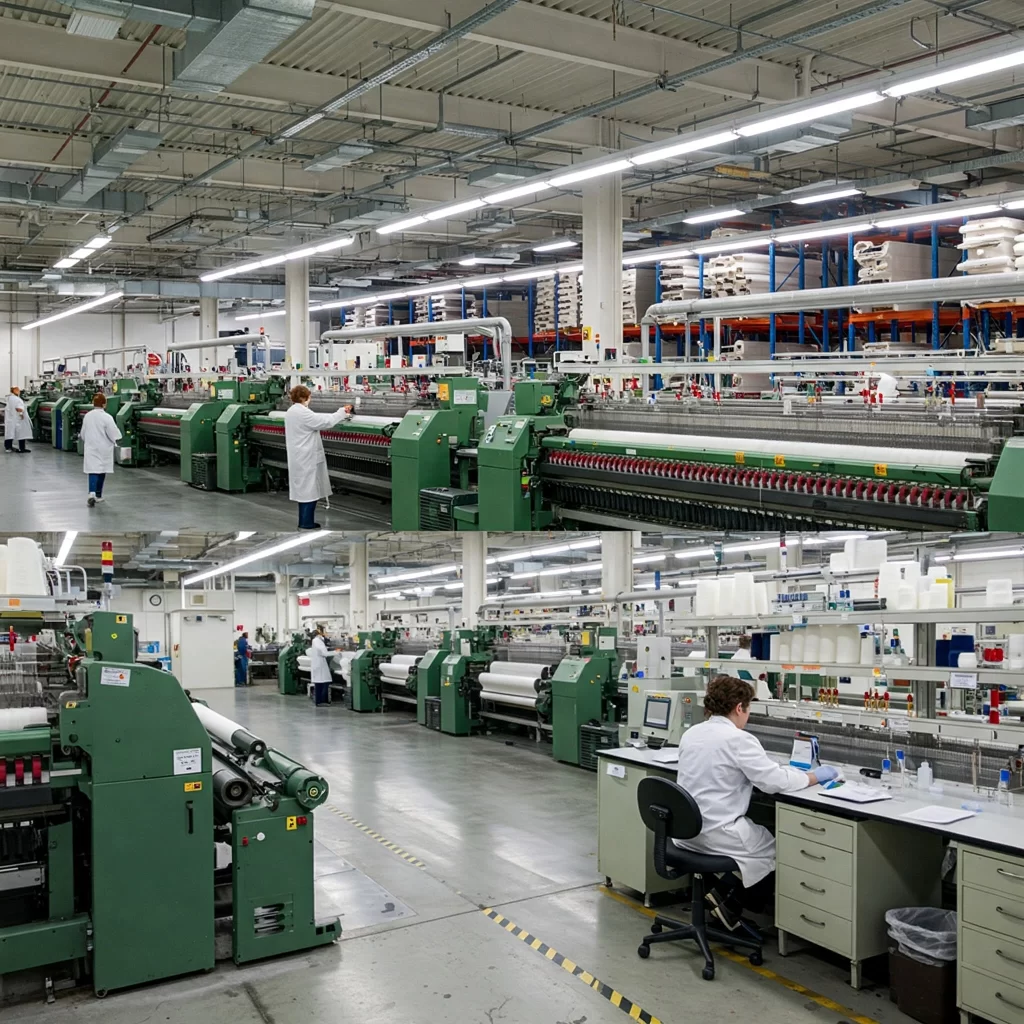
The Future of Textile Chemicals Manufacturing Companies
What Buyers Need to Know
The textile chemical sector is undergoing a period of rapid transformation, driven by a growing emphasis on sustainability, innovation, and performance. Here are some of the key future trends that buyers need to be aware of:
Bio-based Chemicals:
As the interest in sustainable products grows, the progress of bio-based chemicals obtained from renewable resources is becoming more pronounced. These alternatives provide a greener choice than traditional petroleum-based items and can aid in lessening the ecological effects associated with textile production.
Smart Textile Coatings:
Smart textile coatings are infused with functional properties that enhance the performance of fabrics. These coatings can provide features such as water repellency, stain resistance, antimicrobial properties, and even the ability to change color or respond to environmental stimuli.
Digital Textile Printing:
Digital textile printing is a rapidly growing technology that offers greater flexibility and design freedom compared to traditional printing methods. It is also more environmentally friendly, as it reduces water consumption and waste.
Nanotechnology Applications:
The application of nanotechnology is leading to the creation of advanced textile chemicals that possess superior characteristics. For instance, nanomaterials can be utilized to produce self-cleaning fabrics, textiles that offer UV protection, and materials with enhanced durability.
Circular Economy Solutions: The textile sector is progressively emphasizing the implementation of circular economy principles.This strategy encompasses the use of recycled materials, the reduction of waste, and the design of products intended for reuse and recycling. Textile chemical manufacturers are developing products that support these goals, such as chemicals that facilitate the recycling of textile fibers.
The textile chemical industry is undergoing significant changes due to these trends, leading to new opportunities for both producers and consumers. By staying informed about these developments, buyers can make informed decisions about the products they choose and ensure that their textile products meet the evolving needs of the market.
Partnering with the Right Textile Chemicals Manufacturing Company
To conclude, it is vital to choose the right textile chemicals manufacturing company for the prosperity of your business. The caliber of the chemicals employed can have a direct effect on both the performance and durability of your products. It is important to choose a supplier that is committed to sustainability and innovation, and that can provide you with the technical expertise you need to succeed.
Here are some key takeaways to remember:
Technical expertise is essential. A good supplier will have the technical expertise to help you choose the right chemicals for your specific needs and to troubleshoot any problems that may arise.
Quality is paramount. Choose a supplier that has a proven track record of producing high-quality chemicals that meet or exceed industry standards.
Sustainability matters. Look for a supplier that is committed to using eco-friendly practices and developing sustainable products.
Innovation is key. The textile industry is constantly evolving, so it is important to choose a supplier that is at the forefront of innovation and can provide you with the latest and greatest products.
If you are looking for a textile chemicals manufacturing company, here are some things to keep in mind:
- Do your research. Learn about the different suppliers in the market and compare their products, services, and prices.
- Ask for references. Talk to other businesses that have used the supplier’s products and ask about their experiences.
- Visit the supplier’s facility. This will give you a chance to see their operations firsthand and meet with their team.
- Get samples. Test the supplier’s products to make sure they meet your needs.
By following these tips, you can find a textile chemicals manufacturing company that is the right fit for your business.
